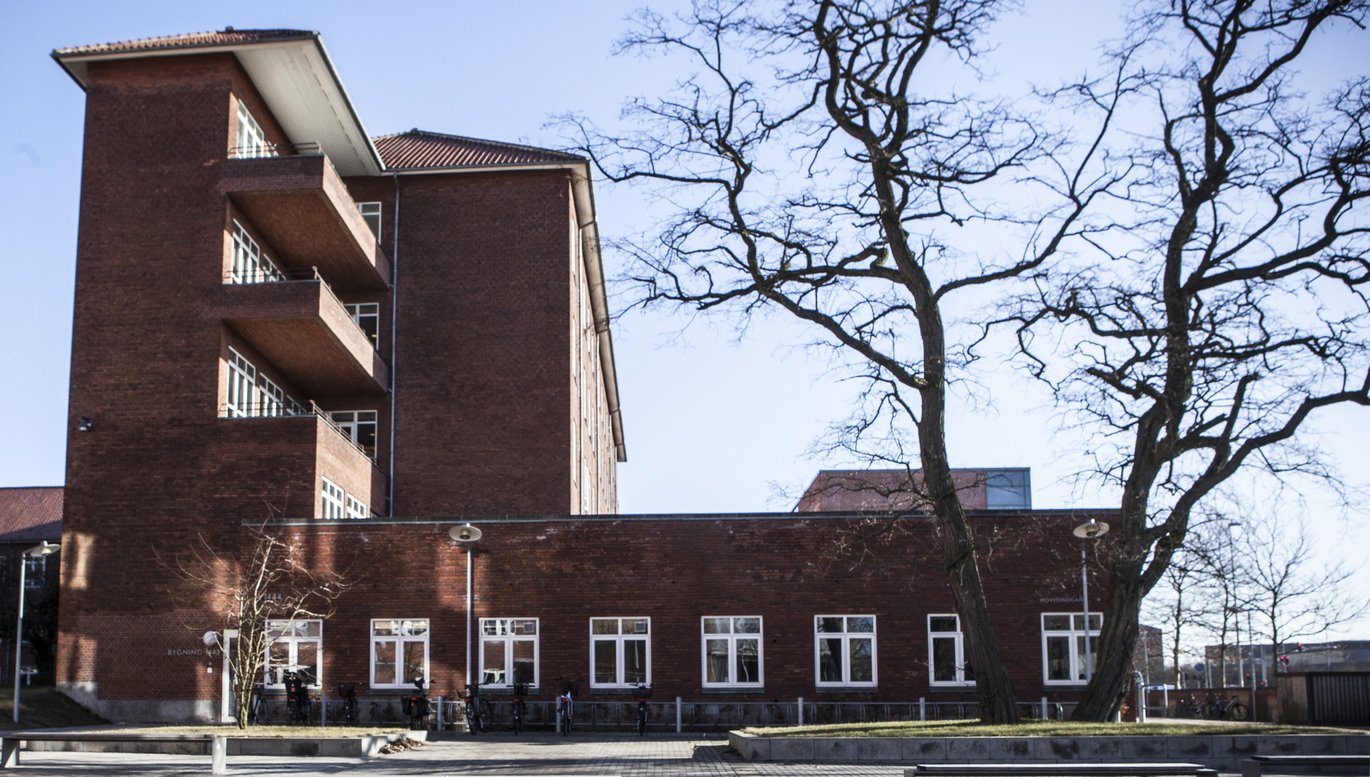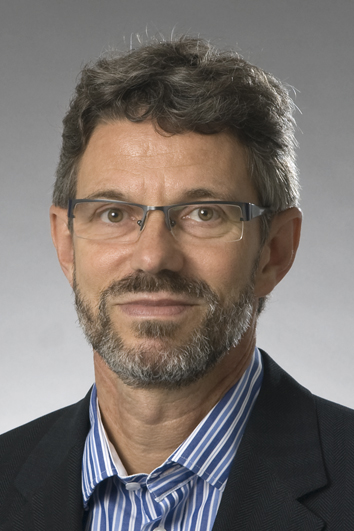Offensive behaviour at Administrative Centre Arts – and sections of the management are responsible
Almost one in five employees at Administrative Centre Arts has been subjected to offensive behaviour, according to the 2022 psychological workplace assessment. A new investigation now suggests that sections of the management are responsible.


Translated by Sarah Jennings
Almost one in five employees at Administrative Centre Arts (ACA) has experienced offensive behaviour in the form of abusive, offensive or derogatory speech. This was revealed by the psychological workplace assessment (WPA) that was conducted across Aarhus University last year. And even though the WPA only asked about events that took place over the last 12 months, there is reason to believe that the offensive behaviour goes back further. Because ACA also scored poorly in this area in 2019.
This prompted administrative centre manager Ole Jensen to launch an investigation to learn more about the problem and to recommend preventive measures. The investigation was carried out at the end of last year by the external consultancy firm Human House, who conducted interviews with both staff and management. At an ACA staff meeting at the end of February, the consultancy firm presented the results of their investigation.
Sections of management responsible for offensive behaviour
The investigation revealed that offensive behaviour had taken place in 7-9 of the 12 departments at ACA and that this behaviour was believed to be perpetrated by sections of the management.
“This is worrying and must be taken seriously – and it must stop now.”
According to the report, it is the way managers carry out their managerial tasks and communicate that employees find offensive. As examples of the former, employees reported that managers manipulate input or withhold information, that they engage in discrimination or favouritism, that they undervalue professionalism or competence, and that they try to control and monitor staff. With regards to communication, employees reported that managers use an aggressive, harsh, hostile and patronising tone. But they also reported unwanted physical and sexual attention.
The investigation also makes it clear that staff believe the management has not dealt with the problem and that previous initiatives have not been effective.
“This is worrying and must be taken seriously – and it must stop now”, said Ole Jensen in his opening remarks at the ACA meeting.
In a subsequent interview with Omnibus, Ole Jensen explains that, following the WPAs, he was aware that several members of staff in ACA had been subjected to offensive conduct at the workplace. And the management responded to this by launching a number of initiatives, including a course in assertive communication, he explains. But it was only after the external investigation into the problem that he learned that it was primarily managers who were behind the offensive behaviour.
“I didn’t know that in 2019. Back then, I thought the initiatives we’d set up were adequate. But it turned out they were not, which is why we’ve taken these steps to help us learn more about the problem. We simply had to get a better insight into the extent and nature of the problem in order to find the best way to address it,” he explains.
What can you say about the fact that this problem mainly exists at management level?
“It is incredibly sad and frustrating. It is simply unacceptable and has to stop immediately,” has says and continues:
“In relation to the exercising of the managerial role, it is important for me to say that managers have a duty and a mandate to make decisions and prioritise. And this in itself is not offensive behaviour. But the way in which you do this can be offensive.”
Ole Jensen is convinced that managers did not intend to offend their employees.
“But employees have perceived their behaviour as offensive, and this has been acknowledged. The first step is to acknowledge what employees experience. And to rectify the situation, so that employees no longer experience offensive conduct from their managers,” he says.
Consultant’s recommendation: Involve the senior management
Based on their investigation and executive orders from the Danish Working Environment Authority, the consultancy firm Human House has made a number of recommendations to follow up on the issue. Here they emphasise that action needs to be taken from above at organisational and management level as opposed to at employee and group level. Precisely because sections of the management are responsible for the offensive behaviour.
“We recommend involving the dean in order to ensure ownership and commitment from the senior management.”
“In order to prevent and deal with offensive behaviour, the management needs to take responsibility and lead the way in preventing and dealing with this type of behaviour. We recommend involving the dean in order to ensure ownership and commitment from the senior management,” one recommendation states.
In addition, the consultancy firm underlines the importance of employees being familiar with AU’s guidelines regarding offensive conduct, and it suggests considering whether a temporary authority should be established for employees to contact if they experience such conduct. It encourages the management to continually follow up on its initiatives to assess whether they are having the desired effect. And it also makes a number of recommendations for the management in particular, including developing a joint and binding leadership mission statement and training managers to better handle incidents of offensive behaviour.
Crisis of trust
Employees are calling on the management to actually act on these recommendations, says Knud Holt Nielsen, who is a communications advisor at ACA and a union representative for members of administrative staff in the centre.
“There is a feeling among many employees that no action has been taken, at least not regarding the issues that concern the management.”
“I encourage the management to follow the recommendation to take action from above at organisational and management level and not from below, which they have done until now. And it’s also important to involve those above the administrative centre manager in order to signal to employees that the situation is being dealt with and taken seriously,” he says and continues:
“We need to create lasting change and to document any future instances of offensive behaviour. And we need to make it clear whom employees should contact if they continue to experience such behaviour.”
Knud Holt Nielsen points out that the fact this problem has remained unsolved for so long has resulted in a crisis of trust between employees and managers.
“The problem has been raised in several WPAs, but many employees feel that nothing has been done about it, at least not the parts of it that concern the management,” says Knud Holt Nielsen.
Support is imperative
Ole Jensen explains that he is regularly updating both the dean and the university director on plans to organise and carry out follow-up initiatives on the investigation – and involving them in this process.
At a meeting of ACA’s local occupational health and safety committee (LAMU) and local liaison committee (LSU) last Friday, it was decided to adjust the composition of the project group that has been advising the administrative centre manager on the investigation and that will advise him on the follow-up process going forward. At the same time, a mandate was adopted for the project group’s work.
“It is imperative that we get everybody to support this – and that’s why it doesn’t help if I just put myself forward and push something through.”
“It has been important for me to reaffirm the group’s mandate and composition,” says Ole Jensen, who points out that the project group – and thus its composition – is important for ensuring the legitimacy of the follow-up process.
“It is imperative that we get everybody to support this – and that’s why it doesn’t help if I just put myself forward and push something through. It makes much more sense to have the support of the employees throughout the entire process. I cannot solve the problem alone.”
When asked whether efforts to tackle the problem will be concentrated at organisational and management level, as recommended, Ole Jensen replies:
“Yes and no. For employees, it is important that the process succeeds. And because Human House recommended that staff should be familiar with AU’s guidelines for dealing with offensive behaviour, I will suggest to the project group that we begin by arranging a course on this topic, which will be held in all departments and also for the management team.”
But which initiatives will be aimed at the management, who – as we know – are the primary problem?
“We will comply with all the recommendations made by the consultancy firm. One of the things we will do is to formulate a joint leadership mission statement, so that employees know what we are responsible for and how we would like to lead the administrative centre. Several managers in ACA have already formulated their own individual mission statements. We will also organise a workshop on our handling of other guidelines, for example our practice on following up on absence due to illness, which is not completely uniform across the organisation at the moment – which of course it should be,” says Ole Jensen.
Behind closed doors
Even though the administrative centre manager is striving for transparency in his follow-up process, he also remarks that parts of it will take place behind closed doors.
“There is of course a legal and ethical limit to how far I can go in relation to openness. Just as I cannot refer to an individual employee’s statement or circumstances, I cannot do this for a manager either.”
At the staff meeting, Ole Jensen was also asked directly by an employee whether anybody would be dismissed as a result of the findings of the investigation.
“There are clear rules for when we can take this kind of action, and we are not there yet,” he answered at the meeting. In his subsequent interview with Omnibus, he did not wish to expand on this point.
Interim assessment in the autumn
At the staff meeting, Ole Jensen was also asked when employees could expect to notice a change.
“I hope you will notice a change as soon as you leave this auditorium,” he answered.
But in order to ensure that the required cultural changes are taking place, he will also conduct an interim assessment during the autumn.
“The steps we are taking need some time to work.”
What about any future instances of offensive behaviour – will you ensure there is a procedure in place for documenting these events?
“I cannot answer that yet. But I expect we’ll discuss this question during our course on how to follow up on such instances. In an ideal situation – and I know we’re not there yet – we would deal with the problem there and then, so that the instances didn’t pile up.”

